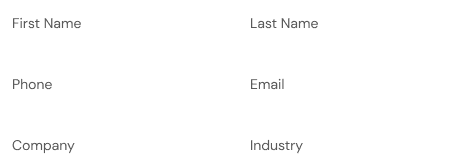
Bare Minimum Mondays might feel tempting, but they don’t solve the bigger problem
The newest TikTok work trend taking our algorithms by storm is yet another attempt to wrestle back some work-life balance. Bare Minimum Mondays, coined by TikTok user and stressed-out employee, Marisa Jo, has now racked up 2.2 million views on the video-sharing platform. The premise is this: to reduce the Sunday Scaries (the feeling of dread employees feel the night before they start a new work week) do the bare minimum on Monday to take the pressure off.
It’s clearly piqued people’s interest - and seems to confirm research by LinkedIn and Headspace that 75% of us have feelings of dread and anxiety before starting a new working week - but it could be a risky route to go down. The issue is, Bare Minimum Mondays do not tackle the root of the problem, nor do they offer a sustainable routine.
Flexible work is an amazing, inclusive option for employees and leaders alike. But it does require a decent level of engagement in order to work - and continue to work. It’s best to advocate for a structure that benefits everyone, not just an individual. For example, a company-wide four-day week, rather than a random day where you work less than others.
Similarly, if employees of a company are consistently feeling anxiety before the work week, this speaks to a much larger problem. It could be time to reassess company culture, toxic leadership or unrealistic workloads. Easier said than done, yes, but worth doing if it brings about permanent change.
It’s also useful to remember that, when it comes to mental health, it isn’t just about keeping your head above water. It’s about thriving. Not reaching the peak of your potential (otherwise known as self-actualisation) can take a toll on us as people. It’s good for us to be achieving rather than scraping by—but it needn’t come with the reward of burnout or Sunday night doom.
So what can we do to make work a less scary, less boring place to be? As Dan Cable describes in his book Alive at Work: The Neuroscience of Helping Your People Love What They Do, “Disengagement isn't a motivational problem, it's a biological one. Humans aren't built for routine and repetition. We're designed to crave exploration, experimentation, and learning.” His message is clear: if we can, we should try to bring as much learning and experimentation into our jobs as possible. Or, at least, structure our days so that we have decent periods for creative thinking.
The fact is, when you find a workplace that allows you to create and express yourself, when you’re contributing to a bigger picture and you feel valued and appreciated, the need to do the bare minimum fades away.
At Remotify, we’re champions of a great work-life balance, and we believe you should be able to thrive at work, flexibly. If you’re interested in making the shift to remote work, why not give our friendly team a call to see how we can help?
Spending Too
Much Time
Onboarding?
your remote hiring in the
Philippines, excellently.
Say Goodbye to High Costs!
Request Your Free Consultation Today andSave a Massive 70% on Your Workforce!

Ready to thrive in a remote-first work environment?


